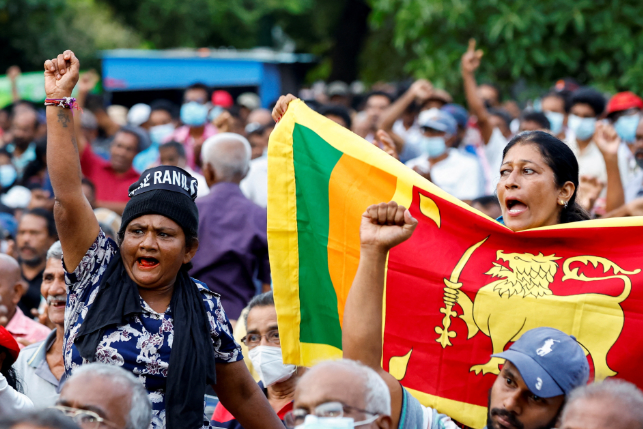
Sri Lanka's IMF Bailout Deal Could Be A Turning Point, Now It Courts China And India
Sri Lanka's International Monetary Fund bailout plan could be a turning point in its worst economic crisis, but far-from-stable politics and a need to get debt relief from competing powers China, India and Japan means some of the hardest work is still to come. President Ranil Wickremesinghe knows a lot of circles will need to be squared for IMF's $2.9 billion lifeline to become a reality. Spending cuts, tax hikes and debt write-downs are a common formula for bankrupt countries, but crisis veterans say there are some uniquely difficult elements here. An impoverished population that forced former President Gotabaya Rajapaksa to flee in July still needs to accept Wickremesinghe, seen by many as of the same political ilk and a man who faces a bristling opposition. The country's borrowings are so complex that estimates of the total range anywhere from $85 billion to well over $100 billion. To get it to a sustainable level Beijing, New Delhi, Tokyo, multilaterals and global asset managers must all swallow losses. "This one of the biggest messes I've ever seen," said Renaissance Capital's chief economist Charles Robertson who has watched emerging market crises unfold for decades. "The government destroyed its revenue base with unsustainable tax cuts, it tried to hold the currency when tourism revenues collapsed and now it has no reserves in the bank and a population facing widespread poverty." Estimates from the United Nations say the crisis has left more than a quarter of Sri Lanka's 22 million population struggling to secure adequate, nutritious food. The IMF's 4-year rescues plan provisionally agreed last week demands serious fiscal repair work and more autonomy for the central bank, which was ordered to frantically print money under Rajapaksa. To hit the IMF's target of lifting its primary budget surplus to 2.4% by 2025, Sri Lanka would get its economy growing by around 6%, something not achieved for about five years. This year it expected to contract at least 8%. Source: NDTV #SriLanka
- 0
- 0
- ₹0

















